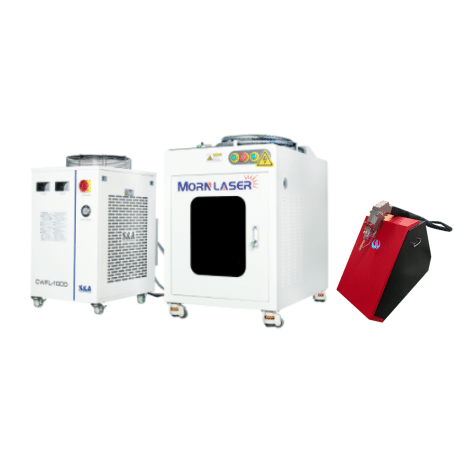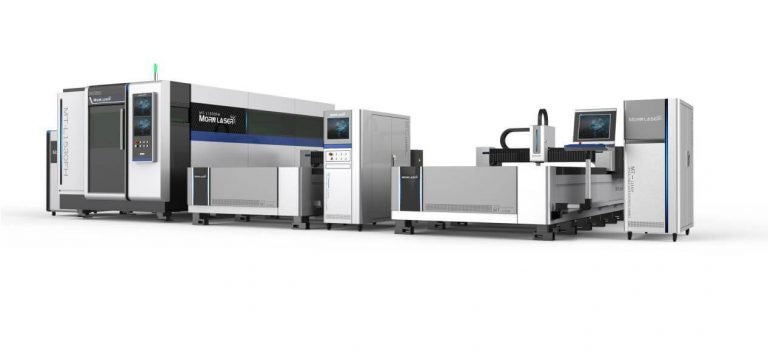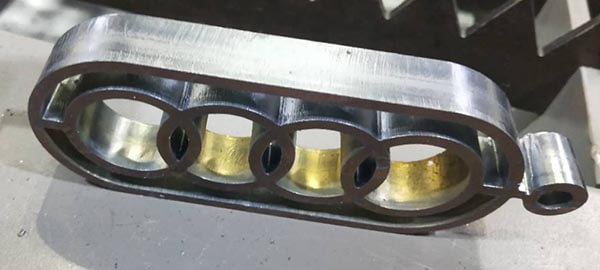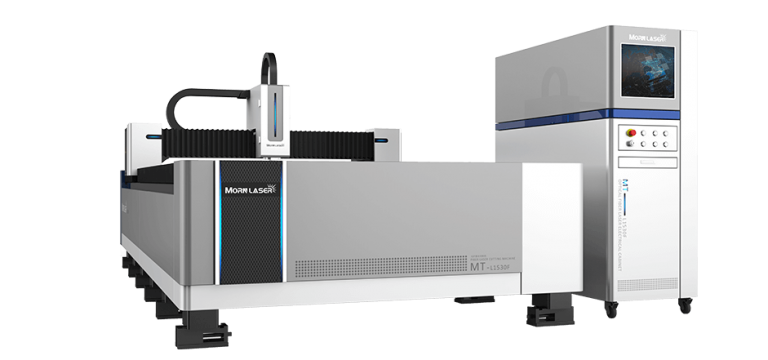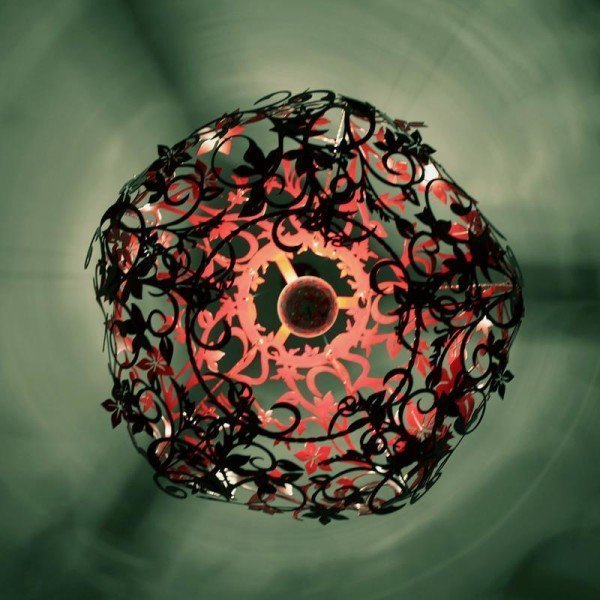Table of Contents
Fiber laser welding machine — Technology of welding with welding wire
The beam energy of laser welding is extremely high. Compared with other welding methods, it has the advantages of lower input heat input, fast welding speed, large aspect ratio and small welding deformation during the welding process. However, laser welding has strict requirements on the gap of the welded joint. The maximum allowable gap for welding does not exceed 10% of the plate thickness, and the maximum cannot exceed 0.3mm. The use of laser filler wire welding can greatly reduce the requirements for assembly accuracy during laser welding. Laser wire filler welding uses laser as the welding heat source, and delivers welding wire to the welding part, so that the welding wire melts and fills the gap under the combined action of laser energy or other energy, and fuses with the base material to achieve welding.
Advantages of laser filler wire welding:
- Reduce the machining accuracy and assembly accuracy of parts
- It is possible to use a kilowatt laser to realize thick plate welding
- The chemical composition of the weld can be adjusted through the welding wire
Factors affecting laser wire filler welding include laser power, welding speed, defocus amount, shielding gas, etc.
1. Laser power
Laser energy plays a leading role in the welding process and is the main source of heat input in the welding process. If the laser power is too small, the work-piece and the welding wire cannot reach the temperature required for melting, which will cause the welding process to fail; if the laser power is too high, the work-piece The material vaporization is serious, the shielding effect on the laser energy will be increased, the energy loss will be serious, and the welding process is prone to excessive splashing, which is not conducive to the stability of the welding process.
2. Welding speed
When the laser power is constant, the faster the welding speed, the lower the welding heat input, and the lower the welding heat input. For laser filler wire welding, the welding speed also has a greater impact on the stability of the wire feeding. If the speed is too high, in order to ensure a uniform appearance and quality, the faster the wire feeding speed is required, so that the welding wire is easy to shake, resulting in welding The process is unstable.
3. Defocus
Under the condition of a certain laser power, the greater the defocus, the larger the spot diameter and the lower the laser power density. In laser filler wire welding, the laser spot needs to act on the welding wire. In order to reduce the jitters of the welding wire and deviate the spot and cause the instability of the welding process, usually adjust the defocus to make the spot diameter slightly larger than the diameter of the welding wire.
4. Shielding gas
The protective gas is mainly to prevent the female weld seam from oxidizing, and eliminate its absorption and shielding effect on laser energy. The flow of shielding gas also has a greater impact on the welding process, and a suitable gas flow has an important effect on the utilization of laser energy and the formation of welds.
- The main factors affecting the welding quality of laser filler wire welding are the amount of defocus, laser power, welding speed and wire feeding speed. In order to ensure the stability of the welding process, the defocus amount is generally adjusted to make the spot diameter slightly larger than the diameter of the welding wire; when the defocus amount is large, due to the decrease of the power density, the laser power needs to be appropriately increased to obtain a stable welding process And good weld formation; laser filler wire welding will be more stable at relatively slow welding speed and corresponding slow wire feeding speed, and the weld quality will be better.
- Compared with single laser welding, laser filler wire welding can significantly reduce the requirements for joint assembly accuracy. The gap margin of 3mm 304 stainless steel laser filler wire welding can reach 1.0mm, which is approximately equal to the diameter of the welding wire used.

